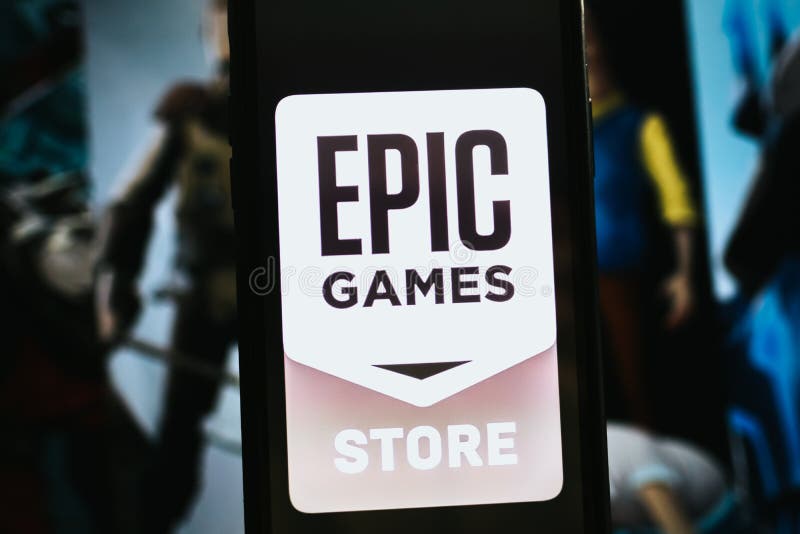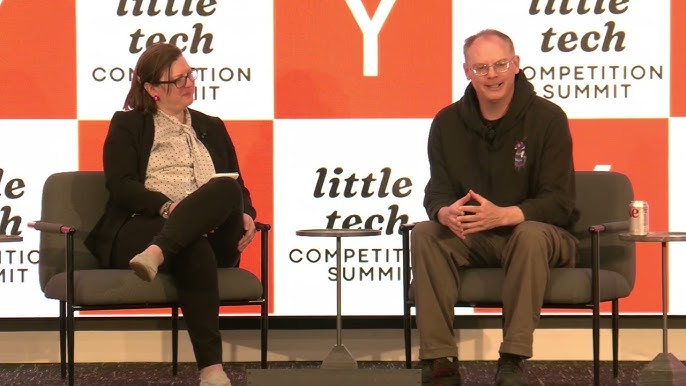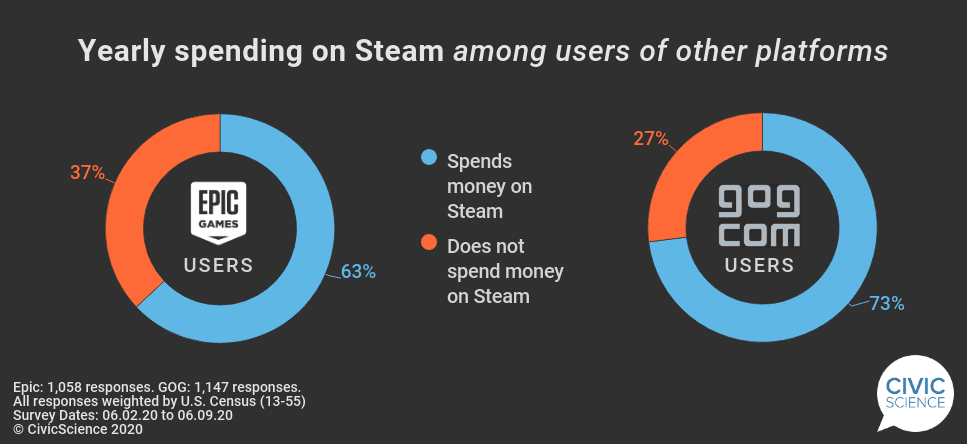The Epic vs.

I’ve been glued to the screen watching gaming trends for longer than I care to admit. I’ve seen consoles rise and fall, the birth of online multiplayer, and the shift from physical media to digital downloads. But the Epic Games v. Apple antitrust lawsuit? That’s a landmark case that could reshape the PC gaming landscape for years to come. It's not just about Fortnite anymore; it's about the future of how we buy, play, and develop games on our PCs. Let's dive into the implications.
The logos of Epic Games Store and Apple App Store represent the central players in this antitrust battle, highlighting their distinct approaches to digital distribution.
The Ruling and Anti-Steering Provisions
While Epic didn’t win on all counts, the court did rule against Apple's anti-steering provisions. In essence, Apple couldn’t prevent developers from informing users about alternative payment methods outside the App Store. While this directly impacts iOS apps, the principle has reverberations for the PC gaming market, particularly concerning the Epic Games Store's strategy.
Epic's Loss-Leader Strategy and the 30% Cut
Epic Games Store, helmed by CEO Tim Sweeney, has been playing the long game. Sweeney's been vocal about his disdain for the standard 30% cut taken by dominant platforms like Steam and Apple's App Store. He sees it as an outdated tax on developers. Epic's strategy has been to undercut Steam by offering developers a more favorable 12% revenue share and by aggressively acquiring exclusives and giving away free games. This burns cash in the short term but aims to build a loyal user base and, more importantly, to challenge Steam’s dominance.
 A courtroom screenshot showing exhibits presented during the Epic v. Apple trial, illustrating the complex legal arguments surrounding antitrust laws.
A courtroom screenshot showing exhibits presented during the Epic v. Apple trial, illustrating the complex legal arguments surrounding antitrust laws.
Legal Arguments: Defining the "Market"
The heart of the Epic v. Apple case rested on defining the relevant "market." Epic argued that the iOS App Store constituted its own distinct market, and Apple held a monopoly within it. Apple countered that the relevant market was broader, encompassing all gaming platforms, including consoles and PCs. The court ultimately sided with Apple on this point, which significantly weakened Epic’s monopoly claims. However, the anti-steering ruling was a clear win for developers seeking more control over their revenue streams. The Epic v. Apple lawsuit centered around the definition of "market." Epic tried to narrow the definition to the iOS App Store, claiming Apple had a monopoly. Apple argued for a broader definition including all gaming platforms.
 An AI-generated image depicting a stylized battle between the Epic Games Store and Apple logos, with the Steam logo looming in the background, visualizing the competitive landscape of digital game distribution.
An AI-generated image depicting a stylized battle between the Epic Games Store and Apple logos, with the Steam logo looming in the background, visualizing the competitive landscape of digital game distribution.
Alternative Storefronts: Can Anyone Challenge Steam?
Steam's dominance in the PC gaming market is undeniable. But the Epic Games Store has shown that there's an appetite for alternatives, particularly if they offer better deals for developers and free games for consumers. Could other major players enter the arena? Microsoft already has the Xbox app on PC, which could evolve into a more robust storefront. Sony, with its growing focus on PC ports, might also consider launching its own distribution platform. Amazon, with its Twitch integration and cloud gaming ambitions, is another potential contender.
The challenge for these new storefronts is twofold: attracting developers and attracting gamers. Developers want a large audience and a fair revenue share. Gamers want a wide selection of games, a user-friendly interface, and competitive prices. Building both requires significant investment and a long-term commitment.
Tim Sweeney's Vision and the Future of PC Game Distribution
Tim Sweeney has been remarkably transparent about Epic's goals. He sees the Epic Games Store as a vehicle for disrupting the status quo and creating a more equitable ecosystem for developers.
As Sweeney tweeted on [insert date]: "The 30% store tax is a terrible burden on the industry. By giving developers 88% of the revenue, we aim to grow the market and give them more resources to create great games."
If I had the chance to interview Tim Sweeney, I'd ask him: "The Epic Games Store is currently operating at a loss. What's your timeline for profitability, and how confident are you that you can surpass Steam in terms of market share and developer support, given the ongoing investment required?"
 A publicity image of Tim Sweeney, CEO of Epic Games, conveying his assertive personality and determined stance regarding the Epic Games Store's strategies.
A publicity image of Tim Sweeney, CEO of Epic Games, conveying his assertive personality and determined stance regarding the Epic Games Store's strategies.
Ethical Implications: Walled Gardens vs. Open Ecosystems
The Epic v. Apple case also raises important ethical questions about walled gardens versus open ecosystems. Apple's App Store is a tightly controlled environment, where Apple dictates which apps are allowed and how they can be distributed. The PC, on the other hand, is a more open platform, where users have more freedom to choose where they get their software.
One crucial concern is data privacy. Both the Epic Games Store and the Apple App Store collect user data, but their practices differ. Apple has emphasized user privacy in recent years, implementing features like App Tracking Transparency. Epic's data collection practices have faced scrutiny, particularly regarding potential links to Tencent, a major Chinese technology company.
The balance between curated experiences and user freedom is a delicate one. While curated environments can offer a more secure and user-friendly experience, they can also stifle innovation and limit consumer choice.
 A chart illustrating the market share of Steam versus other PC game distribution platforms, showcasing Steam's dominance and the challenges faced by competitors.
A chart illustrating the market share of Steam versus other PC game distribution platforms, showcasing Steam's dominance and the challenges faced by competitors.
Legal Precedents and Future Antitrust Cases
The Epic v. Apple case has set some important legal precedents that could affect future antitrust cases involving digital distribution platforms, including cloud gaming services. While Epic didn't win on all counts, the anti-steering ruling could embolden developers to challenge similar restrictions imposed by other platform holders.
For instance, companies like Microsoft (with Xbox Cloud Gaming) and Google (with Stadia, though now defunct) could face similar antitrust scrutiny if they attempt to restrict users' ability to access content or services outside their own ecosystems.
 Another screenshot from the Epic v. Apple trial, highlighting the exhibits and arguments presented by Epic Games.
Another screenshot from the Epic v. Apple trial, highlighting the exhibits and arguments presented by Epic Games.
The Long Game: More Competition, Better Deals
The Epic v. Apple case is far from over, with potential appeals and ongoing regulatory scrutiny. But one thing is clear: it has injected much-needed competition into the digital distribution landscape. While Steam remains the dominant force, the Epic Games Store has proven that there's room for alternatives. This competition benefits both developers, who have more leverage to negotiate better revenue shares, and gamers, who can enjoy lower prices and more free games.
 An image representing the ethical implications of walled gardens (like Apple's App Store) versus open ecosystems (like the PC), focusing on data privacy and user freedom.
An image representing the ethical implications of walled gardens (like Apple's App Store) versus open ecosystems (like the PC), focusing on data privacy and user freedom.
Conclusion
The Epic v. Apple lawsuit was a complex and multifaceted legal battle with significant implications for the PC gaming market. While the final verdict was mixed, the case has undoubtedly sparked a conversation about competition, revenue sharing, and the future of digital distribution. Whether Epic's loss-leader strategy will ultimately pay off remains to be seen. However, the increased competition and scrutiny of platform practices can only benefit developers and gamers in the long run. The rise of alternative PC gaming storefronts may depend on many factors. But the Epic v. Apple case paved the way for other potential alternative platforms. As the digital gaming space continues to evolve, the principles of fairness, transparency, and user choice will be paramount. It's a space to watch, and as someone who has seen countless changes in gaming, I am here for it.
 The Apple App Store logo serves as a visual reminder of the central role Apple plays in digital distribution and the core of the antitrust case.
The Apple App Store logo serves as a visual reminder of the central role Apple plays in digital distribution and the core of the antitrust case.
 The Epic Games Store logo symbolizes Epic's ambition to disrupt the PC gaming market and challenge Steam's dominance.
The Epic Games Store logo symbolizes Epic's ambition to disrupt the PC gaming market and challenge Steam's dominance.